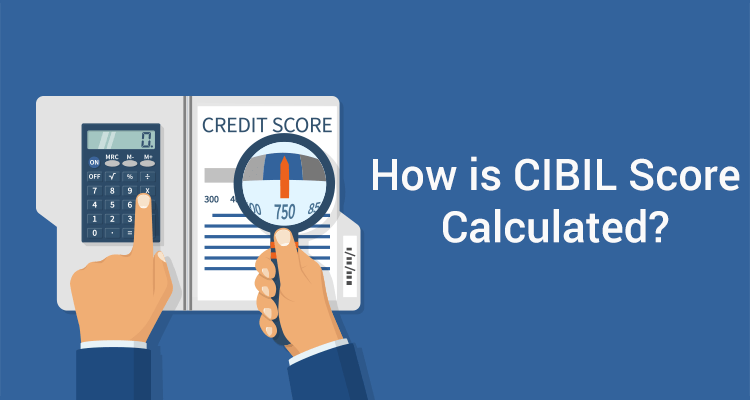How Is CIBIL Score Calculated?
Table of Contents
When lenders such as banks and NBFCs offer the loan amount to any borrower, they take on a high risk if the borrower defaults on the repayment of the loan as most of the loan products are unsecured and do not require the pledging of an asset as collateral. Lenders mitigate such losses by ensuring that the borrower is financially capable of repaying the loan even before offering the loan amount. Termed creditworthiness, lenders include this factor as a part of their eligibility criteria.
The lenders analyse this creditworthiness by looking at the CIBIL (Credit Information Bureau (India) Limited) score of the applicant. The applicant must have a CIBIL score above 750 out of 900 for the lender to approve the loan. However, it is important to understand what the CIBIL score is and how it is calculated.
What Is CIBIL Score?
The CIBIL score is a three-digit score out of 900 that helps the lender check the borrower's creditworthiness before offering the loan amount. An individual with a score closer to 900 is deemed more capable of repaying a loan than those with a lower credit score in India. TransUnion CIBIL Limited generates the CIBIL score. It manages the credit files of over 600 million individuals and 32 million businesses, assesses your credit history, and provides a score out of 900. The higher the CIBIL score, the higher the chances of lenders approving the loan application and at the applicant’s terms.How Is CIBIL Score Calculated?
Here are the factors included in the calculation of CIBIL score:
• Payment History:
If you pay your current outstanding debt, such as a loan EMI or credit card bills, on time, the credit rating agency records the timely repayment and increases the CIBIL score. In case of default, the transaction reflects negatively, and the credit rating agency decreases the score.• Credit Utilisation Ratio:
It is the ratio of revolving credit you use against the available credit limit. For example, suppose you have a credit limit of Rs 50,000 and use Rs 30,000 monthly. In that case, the ratio will be 5:3. A higher CUR reflects negatively on the CIBIL Score.• Credit Duration:
The CIBIL score calculation starts the day you take the first credit. Hence, the duration of credit also affects the CIBIL score. A long duration of positive repayment increases the CIBIL score.Conclusion
CIBIL score is one of the most important factors while taking a loan. Now that you know how it is calculated, you can adopt good repayment habits to build your CIBIL score.FAQs:
Q.1: What is the perfect CIBIL score for loans?
Ans: A CIBIL score above 750 out of 900 is good for getting loans in India.
Q.2: Can I take loans from lenders with a low CIBIL score?
Ans: Yes, you can take various types of loans from lenders with a low credit score if you present a co-applicant or a guarantor or can pledge an asset as collateral.
Disclaimer : The information in this blog is for general purposes only and may change without notice. It does not constitute legal, tax, or financial advice. Readers should seek professional guidance and make decisions at their own discretion. IIFL Finance is not liable for any reliance on this content. Read more




